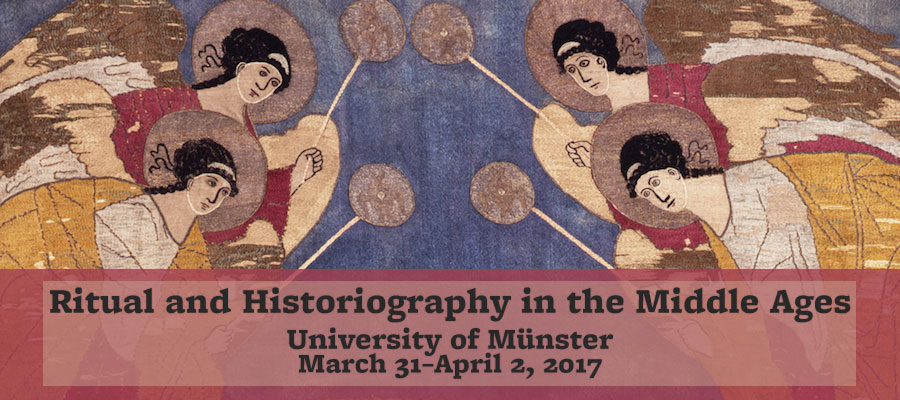Ritual and Historiography in the Middle Ages, University of Münster, March 31–April 2, 2017
The Department of History and the “Religion and Politics Cluster of Excellence” at the University of Münster announce a conference Ritual and Historiography in the Middle Ages.
The past few decades, and especially the past few years, have seen a significant rise in scholarship on medieval Christian liturgy. No longer the esoteric domain of liturgists alone, the rites of the church are increasingly treated by scholars from a broad range of disciplines—including history, religion, literature, anthropology, art history, musicology, and theology—as an indispensable source for the study of medieval society and culture. This conference aims to contribute to the growing discourse by bringing together an international group of scholars to discuss the connection between religious rituals and the writing of history in medieval Europe, Byzantium, the Near East and beyond.
Historiography in the Middle Ages was normally a clerical practice. From Aachen to Kiev to Constantinople, generations of bishops and monks wrote and rewrote, copied and recopied, the political and sacred histories of their respective communities. These same bishops and monks also devoted their lives to performing liturgical rites: day after day, morning, evening and night, they served and sang the holy rituals. Medieval clerics, in other words, spent their lives praying sacred narratives about ancient communities: the Israelites, Christ and the Apostles, the emperor Constantine and empress Helena, to name only a few. The question the conference will explore is how these services and sacred myths influenced the construction of history in Christian centers throughout Europe and the Mediterranean world.
Possible topics include, but are not limited to
- the relationship between church books and history books
- liturgy and the making of a past
- ritual and cultural memory
- liturgy and mythmaking
- politics and ritual
- and liturgical manuscripts as a historical source.
Digital humanists/historians and scholars working on similar themes in non-Christian traditions are also encouraged to apply. The working language of the conference will be English.
Keynote Speakers
Rosamond McKitterick (University of Cambridge)
Eric Palazzo (Université Poitiers)
Funding for the conference has been generously provided by the VolkswagenStiftung and the Andrew W. Mellon Foundation. Hotel accommodations and some meals will be provided. Limited travel funds may also be available for junior scholars.
